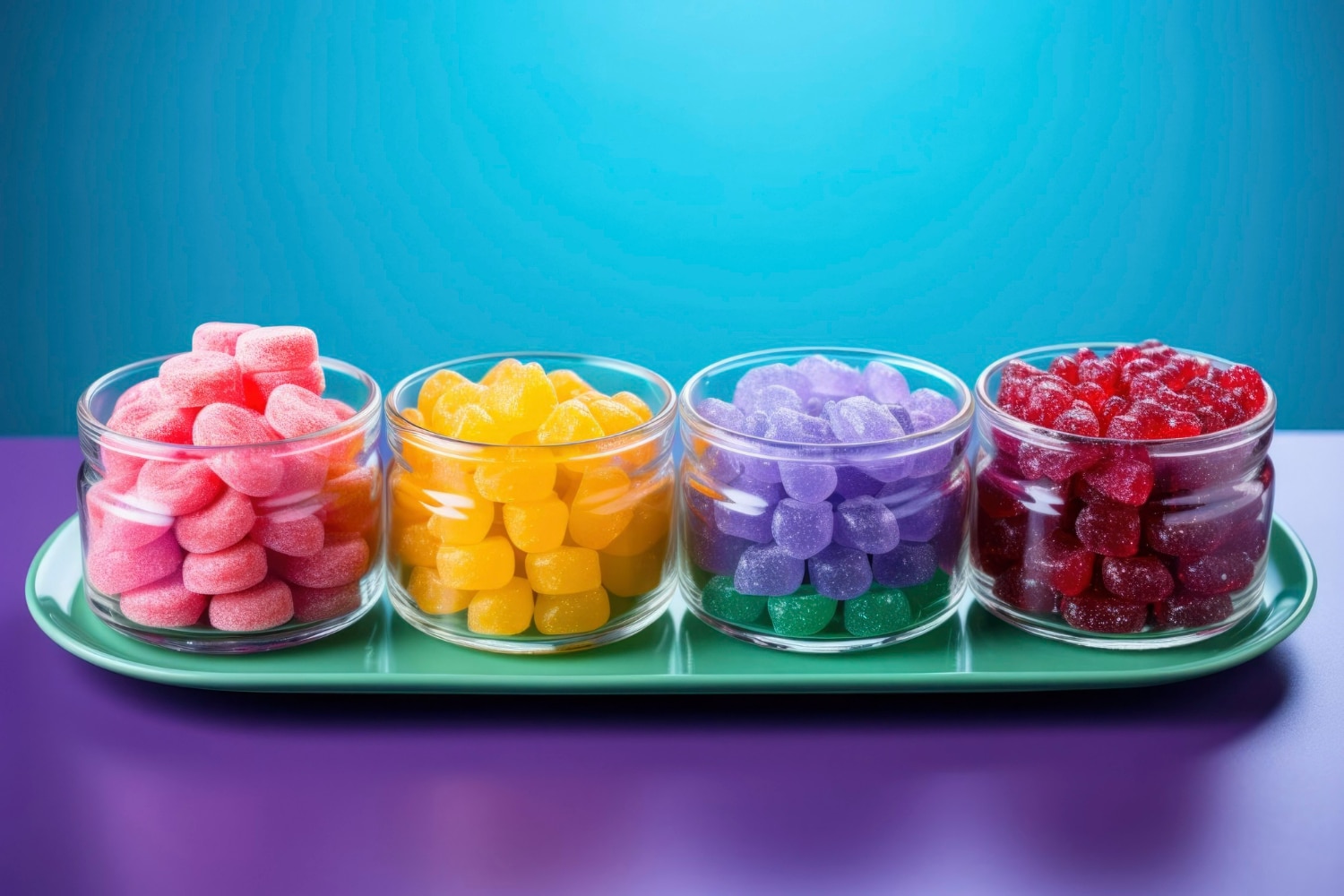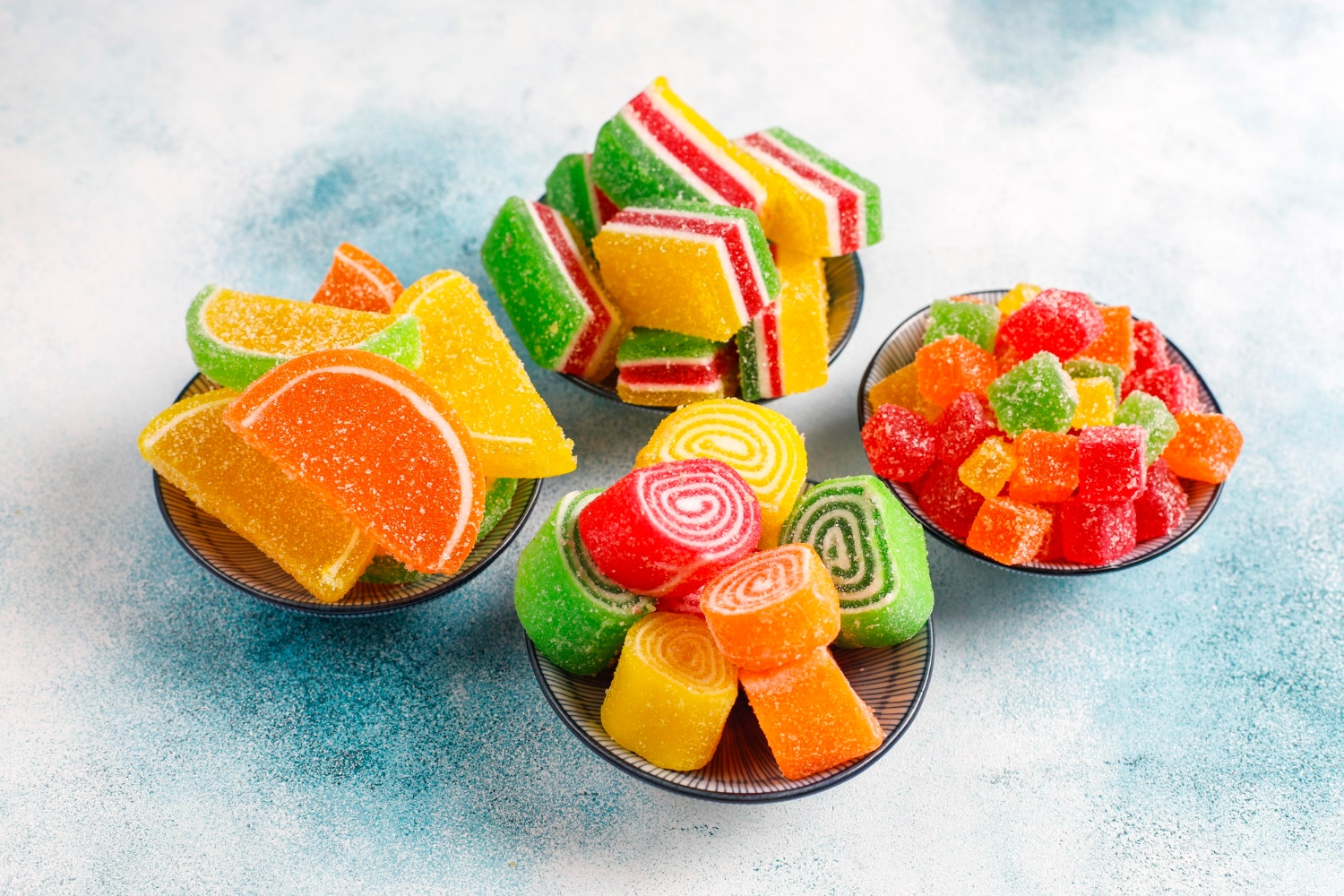No, its Not. Gelatin is not vegetarian friendly because the basic source of Gelatin is animal’s bones. However, there are other options available and one can substitute gelatin for more vegan friendly options. Talking about gelatin, it is a common ingredient in various food products, pharmaceuticals, and cosmetics. Gelatin has unique gelling, thickening, and stabilizing properties. However, it poses a challenge for individuals following a vegetarian lifestyle due to its non-vegetarian origin.
In this discussion, we will explore the composition of gelatin, is gelatin vegetarian friendly, and the ethical concerns it raises.
Is Gelatin Vegetarian Friendly?
Answering about Is Gelatin vegan? Gelatin is not vegan. It consists of animal collagen, typically sourced from animals’ skin, bones, and connective tissues, such as cows, pigs, and fish. As a result, it is not a suitable option for a vegan diet, which avoids all animal-derived products.
Let’s explore what is gelatin made of? and its compatibility with vegetarian-friendly lifestyles.
The Protein Matrix Of Gelatin
Gelatin primarily comes from animal-derived collagen found in various connective tissues, skin, and bones of animals. The most common sources of gelatin production include:
Cattle: The hides and bones of cows are a significant source of gelatin.
Pigs: The skin and bones of pigs are another common source of gelatin.
Fish: Some gelatin has taken from the skin and bones of certain fish species.
Vegetarian-Friendly Alternatives Of Gelatin

Agar-Agar
Agar-agar, derived from seaweed, is a popular and natural vegetarian substitute of gelatin. It has excellent gelling properties, and you can use it in various culinary applications, including desserts, puddings, and confectionery.
Carrageenan
Carrageenan is another plant-based option sourced from red seaweed. It is an effective stabilizer and thickener. It finds widespread use in dairy-free products, vegan cheese, and various processed foods.
Pectin
Pectin, a naturally occurring polysaccharide found in fruits, provides a vegetarian-friendly solution for gelling in recipes such as jams, jellies, and fruit-based desserts.
Plant-based Gelatin Substitutes
Innovative plant-based gelatin substitutes, crafted from a combination of plant-derived gums, starches, and other natural ingredients, are emerging to meet the increasing demand for cruelty-free and vegetarian options.
These alternatives offer versatility and functionality similar to traditional gelatin, empowering vegetarians and vegans to enjoy various delicious dishes and treats without compromising their dietary choices and values.
The Production Process Of Gelatin

The process of making gelatin involves several steps to extract and convert collagen from the animal tissues into a usable form. These include
Pre-Treatment
The animal tissues, such as skins, hides, and bones, are cleaned thoroughly to remove impurities or contaminants.
Acid or Alkaline Treatment
The pre-treated tissues has either an acidic or alkaline nature. This treatment helps break down the collagen into gelatin by disrupting its triple helix structure and converting it into a soluble form.
Extraction And Hydrolysis
The treated tissues are then boiled in water, allowing the heat to extract the gelatin from the collagen-rich material. During the boiling process, collagen undergoes hydrolysis. This breaks down the long chains of collagen molecules into shorter polypeptide chains, resulting in gelatin.
Filtration And Concentration
Filtration of extracted liquid allows to remove any remaining impurities and solid particles. The filtrate has to increase the gelatin content by removing excess water through evaporation.
Cooling and Solidification
Cool the concentrated gelatin solution to form a semi-solid or solid mass.
Drying
The gelatin is dried to convert it into its final form. Gelatin can be packed in form of sheets, flakes, granules, or powder. After this process, the gelatin is ready for use in various food products, pharmaceuticals, photography, and cosmetics. However, gelatin is unsuitable for vegetarians or vegans due to its animal-derived nature.
The production of gelatin raises ethical concerns for those following a vegetarian lifestyle, as it involves the utilization of animal tissues. Also, the growing awareness of these ethical considerations has led to an increasing demand for vegetarian-friendly alternatives.
Gelatin-Infused Food

Numerous food products contain gelatin due to its unique gelling, stabilizing, and thickening properties. Some common foods that may contain gelatin include:
- Gummy Candies
- Marshmallows
- Puddings and Custards
- Yogurt and Yogurt-Based Products
- Creamy and Frothy Beverages
- Soups and Sauces
- Iced Confection
- Confectionery Coatings.
- Meat Products
It’s important to read food labels carefully if you are vegetarian or vegan to identify gelatin-containing products and opt for suitable alternatives or plant-based options. As awareness of dietary preferences and ethical concerns grows, many manufacturers offer gelatin-free choices or label products as vegetarian-friendly or vegan to cater to diverse consumer needs.
Is Jell-O Made From Bones?
Yes, traditional Jello is extracted from bones. Jello is a famous brand name for a popular gelatin dessert, and the gelatin used in making Jello comes from animal bones and connective tissues. The bones, typically sourced from cows or pigs, undergo a process of extraction and hydrolysis to extract collagen. Gelatin gives Jello its signature gel-like texture and makes it firm and jiggly.
However, it’s important to note that you can also make vegetarian-friendly and vegan alternatives to traditional Jello from plant-based gelling agents like agar-agar, carrageenan, or pectin. These alternatives offer similar gelling properties without animal-derived ingredients, making them suitable for individuals following a vegetarian or vegan diet.
How To Identify A Vegetarian-Friendly Gelatin?
While shopping for products, it can be challenging to determine whether it has Gelatin, or a vegetarian-friendly alternative of Gelatin. Reading product labels is essential for identifying gelatin and making informed choices. To identify vegetarian-friendly gelatin, look for products labeled as “vegetarian,” “vegan,” or “gelatin-free.” Many manufacturers are becoming more transparent and responsive to consumer demands, clearly indicating the source of gelatin or using plant-based alternatives in their products.
Gelatin derived from animal sources may be listed as “gelatin,” “gelatine,” or “hydrolyzed collagen,” or by specific animal sources like “bovine gelatin” or “porcine gelatin.”
In conclusion, gelatin is not a vegetarian-friendly option due to its animal-derived origin. It is a protein-based substance obtained from the collagen found in the skin, bones, and connective tissues of animals like cows, pigs, and fish. As a result, it does not align with the dietary preferences of vegetarians and vegans who choose to avoid all animal products.


